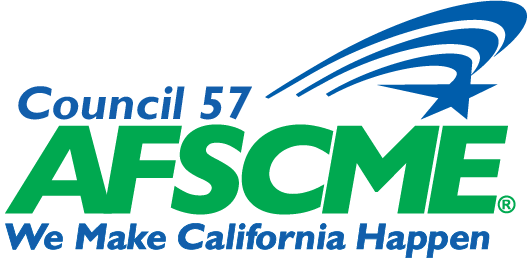When the shelter-in-place order first began in California, facilities such as Head Start Balboa in Richmond made themselves available to nurses, grocery store workers and other essential workers so their children could have a safe place to go while they worked on the frontlines.
As the COVID-19 pandemic continued, Balboa and other centers reopened for all children—and everything seemed to be going well until something happened that put AFSCME Local 1 member Yolanda Williams on high alert.
A Head Start teacher working as an emergency child care worker at Balboa tested positive for COVID-19, but management didn’t tell the rest of the staff until days later and the facility was not shut down immediately.
“I told them that’s not OK and they needed to change the way they were doing things,” said Williams, who works at the Verde center and is the unit president.
Now that talks have started about reopening schools in California, Williams and other members are concerned that school officials might be rushing decisions when many workplaces still don’t have proper safety procedures in place. Those decisions could put staff and kids at further risk of being exposed to the coronavirus.
While the situation at the Balboa center has since been addressed, there are others in Contra Costa County where management is not following standard health and safety procedures. And members are starting to speak out.
“What we keep hearing is that they’ll play it by ear,” Williams said. “That just tells me they don’t really have a plan in place.”
According to EdSource, child care facilities throughout the state have reported a spike in coronavirus cases over the last month.
But it’s not clear whether most staff members and families are getting sick elsewhere in the community or at the child care centers themselves.
Licensed child care facilities, which include centers operated out of providers’ homes, and Head Start—which operates federally-funded school readiness programs for young children from low-income families—are required to report all COVID-19 cases among staff, children and family members.
Williams said the COVID-19 cases at Head Start centers, which have often gone unreported, show that more support is needed for schools and child care facilities so they can have policies and procedures in place to properly respond to the health crisis.
“We are relying on early educators more than ever to support young children and families as we rebuild the economy,” Anna J. Markowitz and Rashmita Mistry wrote in a recent op-ed. “It’s time to devote public dollars to paying and supporting early educators in proportion to the incredible service they provide.”
Getting the workplace response right to the coronavirus outbreak is deeply personal for Williams. During the start of the pandemic in the U.S., Williams was in Las Vegas with some family members for a funeral and church conference.
A few days after they got back home, Williams started having a hard time breating and she started losing her sense of smell and taste. Her elderly mother started feeling feverish. Turns out, they both tested positive for COVID-19.
They not only had to stay quarantined from each other. Williams’ mother also suffered a heart attack, damaged kidneys and memory loss during the process. She has since recovered, but it scared the entire family.
Months later, Williams is still dealing with the longterm health effects of COVID-19, which have impacted her other organs and prevented her from returning to work.
That’s just one more reason why our Local 1 sisters and brothers are demanding that all Head Start programs—and all schools and child care centers, in general—take things more seriously.
“You have to do what the CDC says to do in order to keep yourself safe,” Williams said. “This not only affects you, but it affects everyone you can come in contact with, especially when you’re dealing with kids. I’m a living witness of that.”

